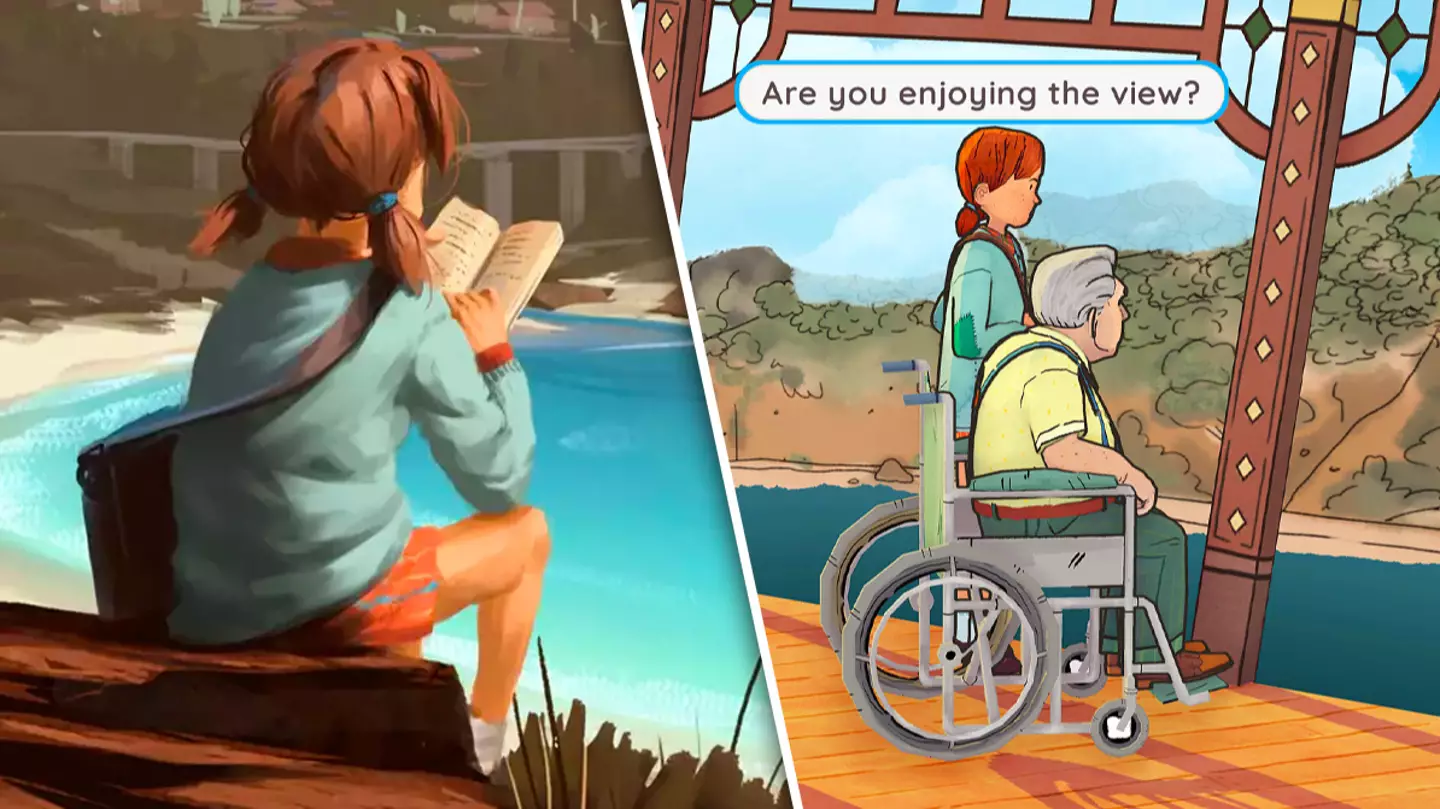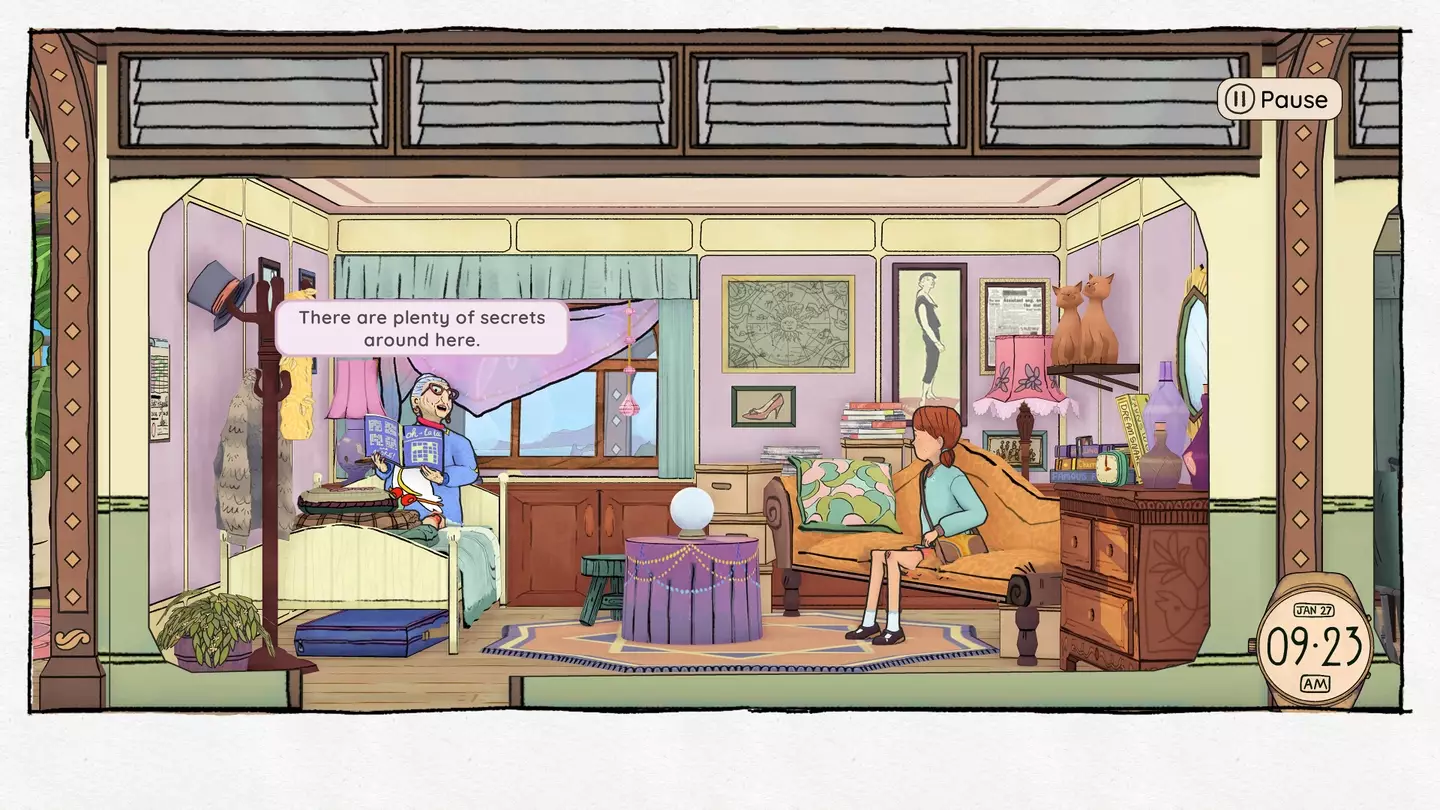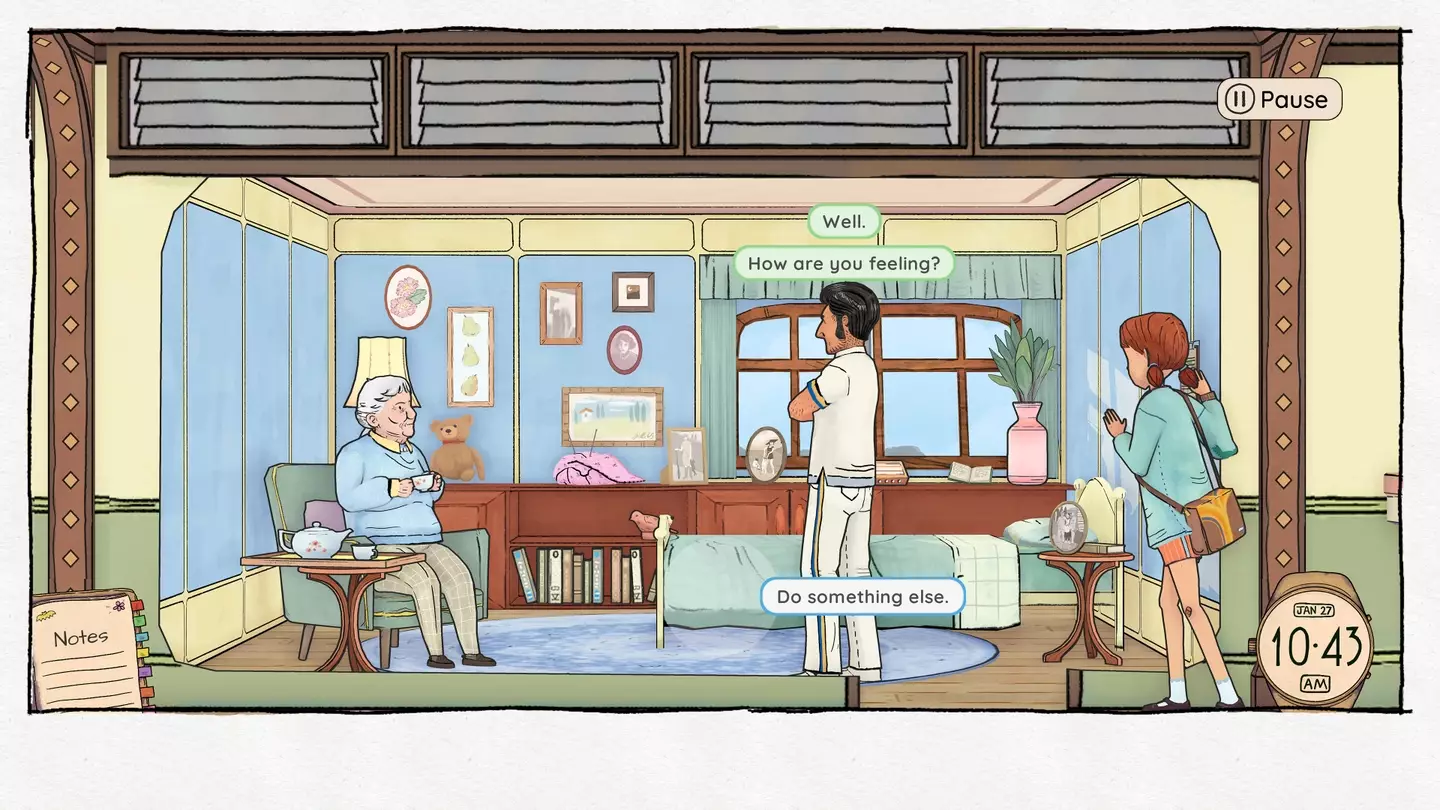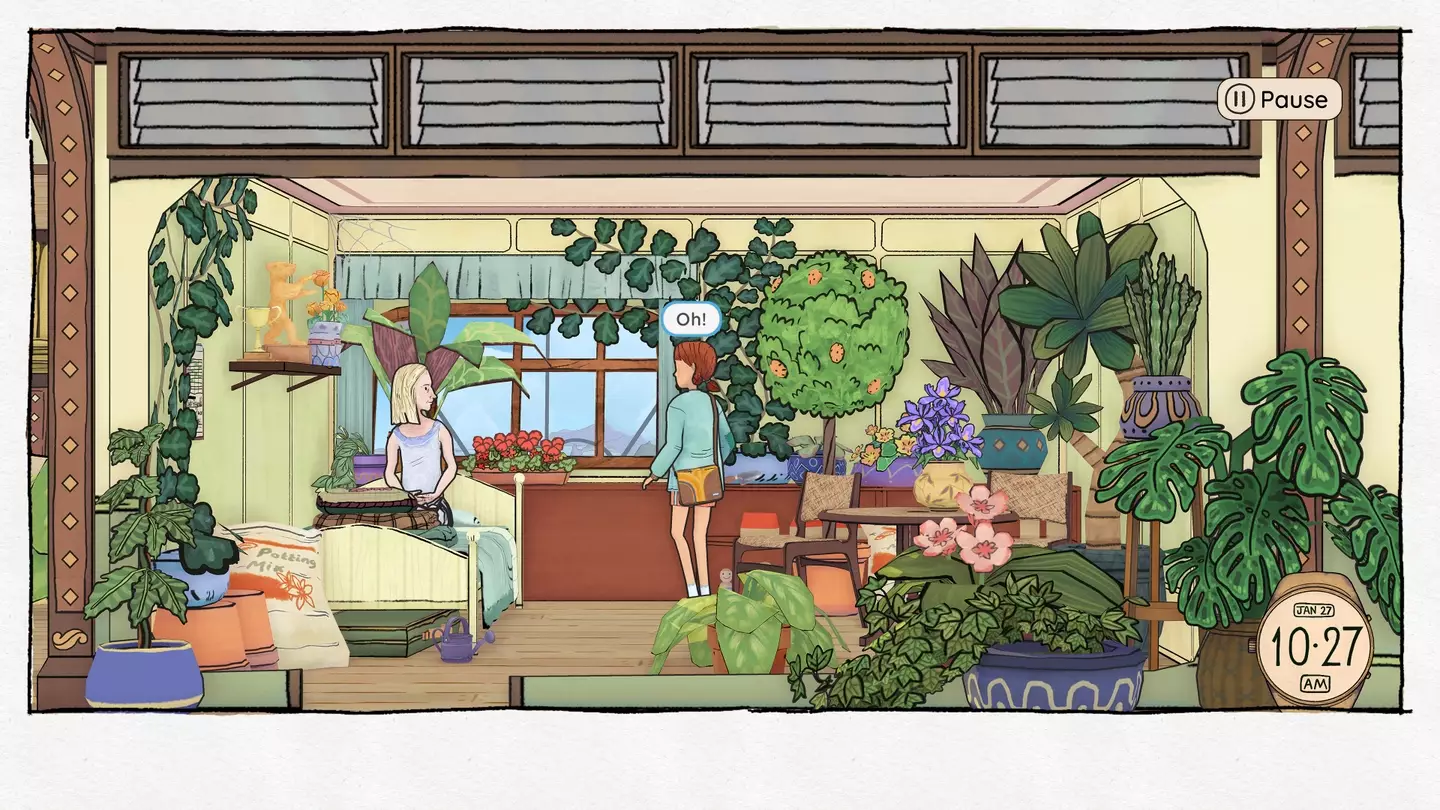
The older I get, the more I inevitably consider mortality. Less so my own though, as it’s more my parents I find myself thinking about, as they creep into their 70s. Will they be able to stay where they are now, y’know, all the way through? Will they need care of any kind? What happens when, as is sure to be the case, one of them isn’t around anymore while the other is? It plays on my mind as we - my immediate family and I - begin to look for our next home. Should it be closer to my kids’ grandparents? You know, just in case.
Watch the PlayStation launch trailer for Wayward Strand below
Wayward Strand, developed and published by Australian studio ghost pattern, doesn’t cast you as an elderly individual playing out their final act or two before shuffling away to whatever’s next, but makes its grey-haired and sore-jointed (one can relate) ensemble of NPCs the focus of the experience. You, as the 14-year-old Casey Beaumaris, walk the halls and rooms and hidden places of a hospital-cum-care home set inside an airship that’s tethered to the earth above a pretty seaside town. It’s the school holidays, early 1979, and your mum works here - they’re understaffed, so she can’t take the time off - so for three days you’re helping out: running occasional errands for residents and compiling a report of sorts as homework, but more importantly just being there for the occupants of this place. You’re a new face to share some time with, some small talk, some gossip - and you never know where or what the tiniest thread worth pulling on might lead to.
Advert

Wayward Strand doesn’t have a sharp narrative point - its mysteries are minor but many and won’t reveal themselves completely in a single play, as the game will wrap at the end of Casey’s third day (after about four hours of screen time) whatever path you’ve taken through it. Perhaps you’ve dug into the history of this creaking place, and even spoken to those who once paid to travel on it; or perhaps you’ve followed your mother’s colleagues on their rounds and listened in from outside rooms as the small matter of a significant visit from a serious official becomes a strain on all the staff. Wherever your curiosity takes you, there’ll be a reward for it, but such is the pace that this game moves at - like so many of its characters, slow but purposeful - and so quietly are its myriad stories told that the payoff will only ever be a delicate thing. It’s the thought that counts more than anything else.

Which is to say: don’t play Wayward Strand expecting some final-reel big reveal, as that’s not the point of this game about conversing and caring, and sometimes just about sitting in silence as someone who seemingly expresses only loathing towards you finally falls asleep, their suffering briefly stalled. It’s a game about processing how wildly different personalities react to the realisation that this might be it, this might be all they have now: the same view from the front of this ship; the same soup for lunch brought up from who-knows-where in a pleasantly polite dumbwaiter; the same group of souls lifted from the soil but not yet passed onto what comes after. Better make the most of it, then. In a way, this is a game set in a limbo of rusty rivets and ramshackle rooms, a between-places space of intimate introspection and last-minute declarations. There are close relationships rocked by off-screen incidents, and others that on first impressions appear distanced but by day three have warmed in the sunlight that streams in through the holes in the hull. Wayward Strand is a game about waiting, but not idly.

Casey can be curt or calm, kind or cutting, that’s your choice. But why would you choose to be cruel? As Wayward Strand shuffles its way to whatever ending you’ve given yourself, it paints its NPCs in hugely individual fashions, giving every resident a memorable personality - something helped by terrific voice acting from a cast including Anne Charleston, best known to UK readers as Madge from Neighbours. It makes you care about what happens to them after Casey’s stint is finished, and think about the very real folks you so easily take for granted, and so rarely see as your life runs at 100 miles an hour while theirs are slowing down. The prospect of death, however distant it may or may not be, isn’t an easy thing to begin coming to terms with, whether your own or a loved one’s; but I feel that interactive fiction like Wayward Strand can bring some focus on a complex matter, distilling as it does the reality that every life leaves its mark, and every relationship forged is more than its corporeal elements.
Wayward Strand is out now for PC, Nintendo Switch (version tested), PlayStation and Xbox consoles. Code provided by the publisher.
Topics: Indie Games, Opinion
